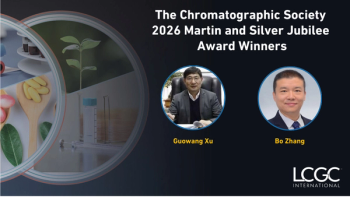Key Points
- MAPS stands for macroporous polyacrylamide hydrogel septum, a novel elastic connection technology developed by Bo Zhang’s team at Xiamen University. Designed as a complementary solution for capillary column interfacing in liquid chromatography, MAPS provides a low-dead-volume, mechanically stable, and easy-to-use alternative to conventional connectors.
- Conventional zero dead volume (ZDV) fittings often suffer from mechanical instability and complex assembly, which can compromise reproducibility and column efficiency. MAPS addresses these challenges by offering a more robust and user-friendly interface, thereby improving the reliability of chromatographic setups.
- The MAPS connection demonstrated stable performance over repeated use and extended periods, suggesting lower maintenance needs and improved operational stability. Additionally, MAPS supports the development of modular, high-efficiency column assemblies, streamlining method development for both research and routine applications.
As chromatographers are acutely aware, achieving reliable, low-dead-volume connections remains a persistent challenge in preserving column efficiency and ensuring reproducibility. Zhang provides insight into the rationale behind the development of MAPS, emphasizing how it addresses persistent limitations associated with conventional zero dead volume (ZDV) fittings, particularly in terms of mechanical stability and ease of use (1).
The discussion further explores the robust performance of MAPS over extended usage periods, highlighting its potential for reducing maintenance frequency and improving long-term operational stability. From a method-development standpoint, Dr. Zhang outlines how the MAPS system could streamline the construction of modular and high-efficiency column assemblies—an advancement with implications for both research and routine analysis.
Finally, Zhang shares a forward-looking view of his research group’s ongoing work in separation science, offering a glimpse into emerging technologies poised to enhance chromatographic workflows.
Bo Zhang answered the following questions in this short video interview:
• You recently published a paper highlighting the benefits of MAPS as a complementary connection for capillary column? What is MAPS and what was the rationale behind embarking on this research?
• What specific limitations of conventional zero dead volume (ZDV) connectors does the MAPS connection overcome, and why have these limitations been difficult to address until now?
• The article highlights that stable performance over repeated use and a month-long period. What does this suggest about the long-term reliability and maintenance needs of the MAPS connection compared to conventional fittings?
• From a method development perspective, what new possibilities or simplifications might the MAPS connection enable—especially in constructing modular, high-efficiency column setups?
•What else is your group focusing on in relation to separation science?





